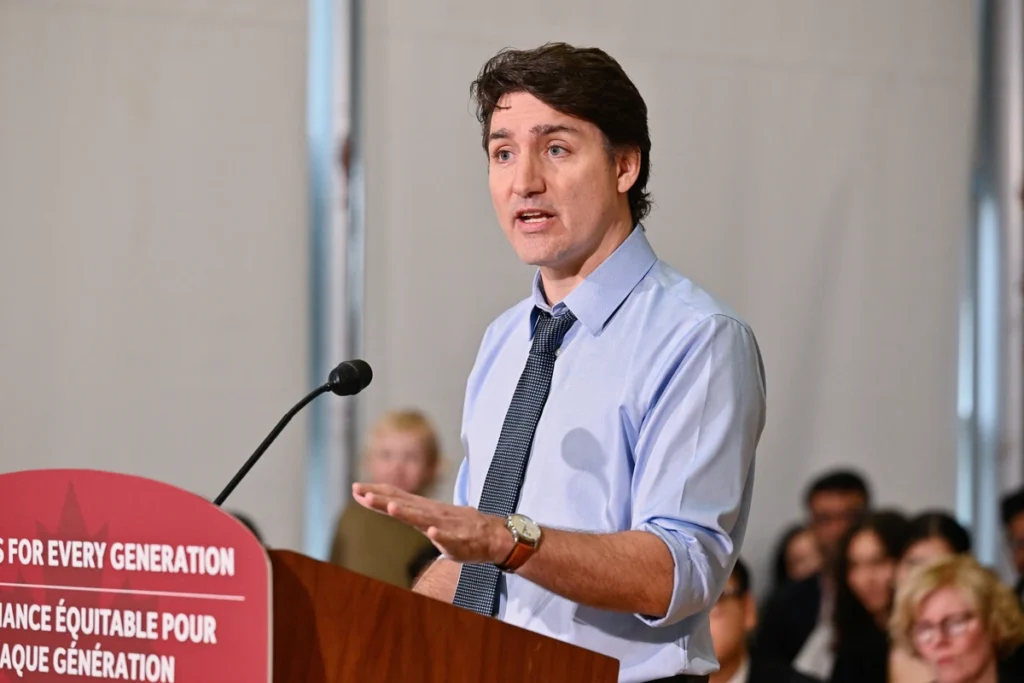Every weekend, Green Party Leader Elizabeth May sends out a “Good Sunday Morning!” email to her constituents and supporters. I am not a Green voter, mostly because I disagree with the party on immigration, and social and cultural issues. I do, however, find this to be an admirable way to connect with the public, which more MPs should adopt.
May’s latest email warns of the creeping Americanization of Canadian political discourse. She disagrees with the emphasis placed by the Conservative Party, under Poilievre, on the “Canadian Dream”. This dream can be defined as the ability of individuals to climb the economic ladder and achieve the good life. This is coupled with an emphasis on “freedom”; the government’s role is to step aside and allow citizens to pursue wealth.
To May, grounding our identity in a dream of enrichment and freedom betrays an individualism at odds with Canada’s historic emphasis on “community” and the “public good”. She points out that Canada was founded on “peace, order, and good government”, not the “rugged individualism” of American mythology.
Canadian political conversation taking on American tones is unsurprising. Since its birth, the United States has always been the culture that swallows other cultures. The American Revolution in 1776 marked a fundamental break from the Old World, with the fledgling republic rejecting the English style of government and imagining itself as a blank slate.
The U.S came to believe in its “Manifest Destiny” to extend itself over North America. In doing so, it would spread its historically unprecedented, blank slate, capitalist, frontier republic over the entire continent. Direct conquest was rebuffed in the War of 1812. American troops were held back, and the White House was famously torched in a counterraid led by General Robert Ross. The United States has since employed the more insidious tools of economic and cultural influence.
It is little known that the U.S government and the American Medical Association spent millions of dollars on propaganda and disinformation to derail the birth of universal healthcare in Saskatchewan. Stranger still, in 1942, President Franklin Delano Roosevelt wrote to Prime Minister Arthur Meighen, suggesting that “by some sort of planning”, French Canada be assimilated into “the rest of the racial stocks” – which would have effectively wiped out Québecois culture.
Poilievre’s promotion of American values betrays a subtler influence still, in which American language is absorbed by Canadians through media. This can be seen on a smaller scale in the decline of proper Canadian spelling (metre not meter, colour not color, and so on).
What political philosophy should counteract Poilievre’s American-style individualism? Certainly not woke ideology, which was imported straight out of American academia, and now infects the Green Party, the NDP and the Liberals.
Canadians must rediscover the authentic conservatism of the tory tradition. Your homework before my next column: read a smattering of Edmund Burke, Stephen Leacock and W.L Morton, and write to Poilievre asking that he adopt a new slogan: “peace, order and good government”.
*Correction: Franklin Delano Roosevelt’s letter, in which he suggested that “by some sort of planning, French Canada be assimilated into “the rest of the racial stocks”, was actually sent to Prime Minister William Lyon Mackenzie King, in 1942. Arthur Meighen was Prime Minister in the 1920s.
Editor’s note: This article was originally published in the Islands Marketplace magazine (islandsmarketplace.com/issue.pdf) in my bi-monthly column, Counter Current.
All content on this website is copyrighted, and cannot be republished or reproduced without permission.
Share this article!




The truth does not fear investigation.
You can help support Dominion Review!
Dominion Review is entirely funded by readers. I am proud to publish hard-hitting columns and in-depth journalism with no paywall, no government grants, and no deference to political correctness and prevailing orthodoxies. If you appreciate this publication and want to help it grow and provide novel and dissenting perspectives to more Canadians, consider subscribing on Patreon for $5/month.
- Riley Donovan, editor